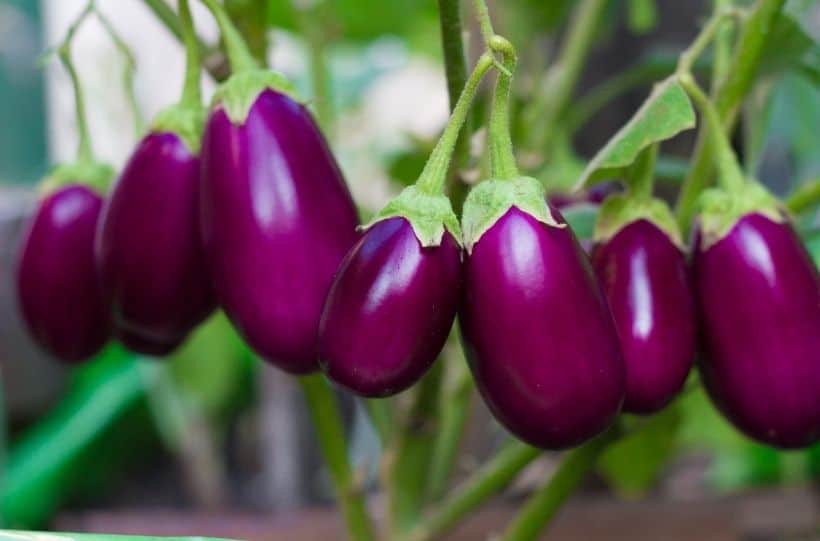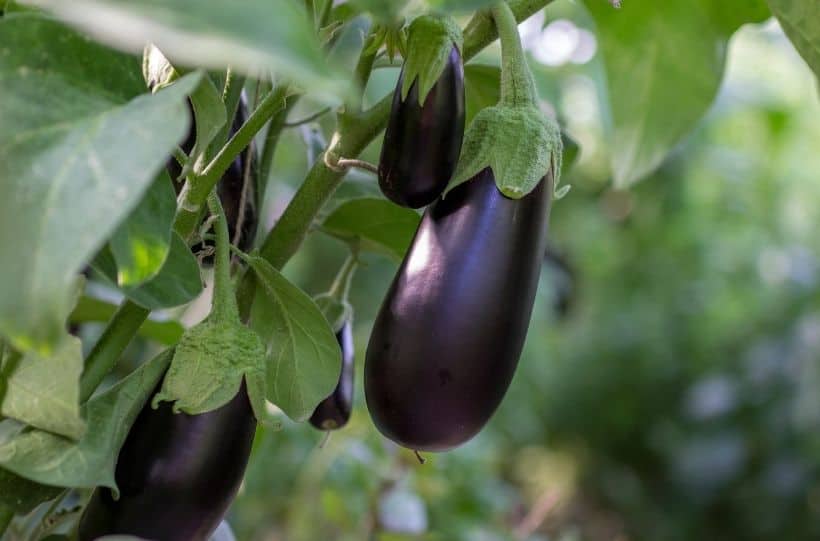Will Eggplants Survive Winter Weather?
If you’re growing eggplants but live in an area that experiences colder weather, you might be asking whether your eggplants will survive winter weather.
As eggplants are tropical plants, they prefer warmer weather and aren’t climatized to the harsh weather that is guaranteed in parts of the world that experience winter.
If you live in an area that has frosts, harsh winds, and strong rain during winter, you need to protect your eggplants or they won’t survive.
This post will take a look at whether or not your eggplants stand a chance during winter and ways you can protect them.

Will Eggplants Survive Winter Weather?
In a nutshell, your eggplants can survive winter weather, but not on their own. Eggplants are perennial plants which means that they regrow every year.
Eggplants never stop growing all year. Many perennials are accustomed to winter weather and become dormant during colder months. However as eggplants are tropical plants, although they slow down their growth, they continue to grow all year long.
This means that if you live in an area that experiences warm weather throughout the year, your eggplants will still flower and produce fruit. However, if you live in a part of the world that has winter, your eggplant will need support to survive.
Many gardeners treat eggplants as an annual plant due to the maintenance needed over winter. Instead of implementing ways to protect their eggplants, they dig them up and replant them the following growing season.
But growing a vegetable from scratch requires time, effort, and finances. So although it seems like a quick fix for winter, it is a more costly option in the long run.
Instead, you can protect your eggplants to ensure they will survive the winter weather and continue to produce fresh fruit the following year.
Ways To Protect Eggplants In The Winter
To ensure your eggplants survive winter weather, here are 6 ways to protect them:
Bring Pots Inside
Eggplants thrive being planted in containers, so it might be the case that you have chosen to plant your eggplants in pots also.
They can grow to a foot long once trimmed so your eggplants will need a large pot to provide space for their roots.
Using a pot is a good option for gardeners living in a colder area. During the winter, you can bring your pot inside. This helps protect your eggplant from cold temperatures and strong winds.
Ensure that your plant is placed in an area with access to direct sunlight and minimal drafts.
Once the weather becomes warmer, over 20 degrees, you can place your eggplant back outside for the growing season.
Trim Your Eggplant
Trimming your eggplant is important to do as it grows, but also important to do before winter.
Trimming your eggplant in the growing season is needed to encourage your plant to grow side shoots. This helps your plant produce more fruits rather than focusing its growth upwards.
Before the winter arrives, it helps to trim your eggplant to discourage too much growth. As eggplants slow down their growth during the winter, this helps to lower the risk of your plant dying due to frost and encourages new side shoots to grow the following season.
Trim your eggplant down to three, strong stems. This might seem extreme, however, when it comes to the following season, your eggplant will use its energy to grow new shoots which will produce more flowers and hence more fruit.
Provide a Cover
Like most outdoor plants during the winter they require a cover to protect them from the frost. Frost can kill plants and can be detrimental to your eggplants.
A simple mulch cover over the soil can help to protect your eggplant’s roots and help the soil retain its nutrients.
But the stems and flowers of your eggplant also need protection.
For this, use horticultural fleece to place over your plants when a frost is due. Don’t leave the fleece on permanently as it can cause your plant to overheat and limits access to fresh air that your plants need.
Place Inside A Greenhouse
Similar to moving your pots indoors, using a greenhouse is an excellent alternative if you just don’t have indoor space for your eggplants.
You can plant your eggplants directly in your greenhouse to keep all year round or move your pots from your garden to your greenhouse.
If choosing the first option, your eggplants will remain in a warm environment all year round and, with the right amount of care, can still produce fruit during winter.
However, it is a good idea to provide your plants with a growing break. This helps them to live longer and grow a better supply of produce each season.
Access To Sunlight
Even though your eggplants have slowed down their growth during winter, they still need access to sunlight.
Being tropical plants, they naturally prefer being positioned in direct sunlight. When considering where to plant your eggplants, ensure to position them in a sheltered area of your garden that has access to the sunlight all year round.
If you have planted your eggplants in containers and brought them inside for the winter, make sure they are in a part of your home that receives sunlight throughout the day.
Remember To Water
Even though eggplants slow down during the winter and do not grow as much, just like all plants, they still require water. Remember to water regularly during the winter. Check the soil to see if it is damp or dry first, then water accordingly.
Eggplants do not like to be too damp and need good drainage, so it is best in the winter to water them once a week unless the soil feels too dry and then top up as needed.

Eggplants will survive winter weather if they are taken care of appropriately. As perennial plants, they slow down their growth during cold weather and, with the right protection, spring back to life to produce new fruits the following growing season.
Take a look at some more top tips for winter care here:
